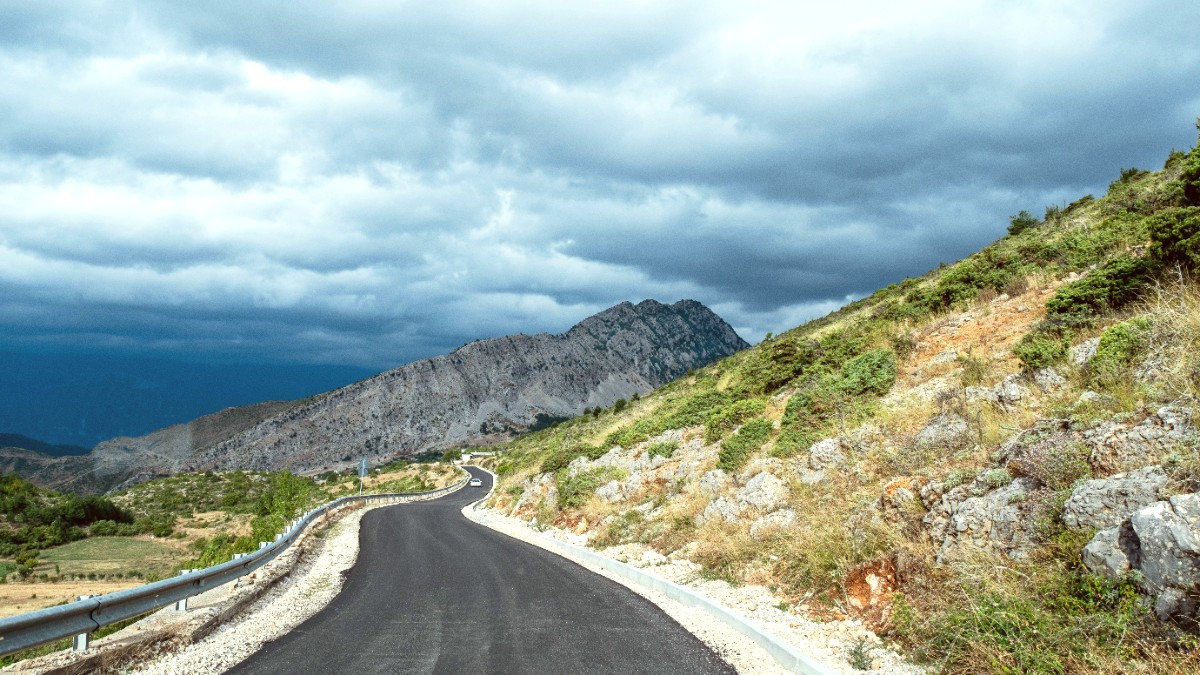
Albania
The Albanian Riviera benefits from a Mediterranean climate, with hot, dry summers and mild, wet winters.
The region experiences distinct seasons, each offering different conditions and experiences for visitors.
The best time to visit depends on individual preferences for activities and crowds.
June to September is best for beaches and swimming, while shoulder seasons are good for hiking and cultural exploration.
Late June - Early September
Warmest weather for swimming, many events available.
Crowded, highest prices, intense heat.
May-June and September-October
Pleasant temperatures, fewer crowds, lower prices.
Water cooler early on, some businesses closed late in period.
November - April
Few tourists, significantly lower prices, peaceful atmosphere.
Many businesses closed, limited transport, cool and rainy weather.
July and August can bring intense heatwaves, with temperatures exceeding 40°C (104°F). Winter months (December-February) receive the most precipitation, sometimes leading to localized flooding or disruption of unpaved roads. Occasional strong winds appear, especially in winter or during thunderstorms.
Staying hydrated and using Sun protection for heatwaves is a wise choice. Be aware of changing road conditions during heavy rain.
July-August can reach over 40°C. Hydration is .
December-February sees most rain; flash flooding may occur.
Strong winds appear occasionally, especially in winter.
Check weather forecasts close to travel and pack accordingly.
Unpaved roads may be disrupted by heavy rain.
Albania maintains a welcoming visa policy for tourists.
Citizens of many countries enjoy visa-free entry to Albania for tourism for up to 90 days within a 180-day period. This includes citizens of Schengen Area countries, EU, UK, USA, Canada, Australia, New Zealand, Japan, South Korea, Brazil, and UAE.
Citizens of countries not on the visa-free list must obtain a visa. Application typically happens at an Albanian embassy or consulate.
Upon arrival, travelers proceed through passport control, where their documents are verified for entry into Albania.
Albania offers a cost-effective travel experience compared to many other European destinations, especially along its stunning Riviera. Strategic budgeting enhances the trip.
The official currency of Albania is the Albanian Lek (ALL). Exchange rates fluctuate; check current rates closer to your travel date.
Exchange offices and ATMs are common in cities. Larger establishments accept credit cards, but cash is often preferred or necessary in smaller places.
A traveler seeking the most economical options for accommodation, food, and transport.
Daily Estimate: $47-90 / €42-81
Accommodation: Hostel dorm, guesthouse (2,000-4,000 ALL)
A traveler who balances comfort and experience with reasonable spending.
Daily Estimate: $100-220 / €90-198
Accommodation: Mid-range hotel, pleasant Airbnb (4,000-9,000 ALL)
A traveler prioritizing premium experiences, comfort, and top-tier services.
Daily Estimate: $220+ / €198+
Accommodation: Boutique hotel, resort, luxury villa (9,000+ ALL)
| Category | Budget Traveler (Daily ALL / USD/EUR) | Mid-Range Traveler (Daily ALL / USD/EUR) |
|---|---|---|
| Food | 1,500 - 2,500 ALL ($15-25 / €14-23) | 2,500 - 5,000 ALL ($25-50 / €23-45) |
| Local Transport | 200 - 1,000 ALL ($2-10 / €1.8-9) | 1,000 - 3,000 ALL ($10-30 / €9-27) |
| Activities/Attractions | 500 - 1,500 ALL ($5-15 / €4.5-14) | 1,500 - 4,000 ALL ($15-40 / €14-36) |
Albania is generally a safe country for tourists. Awareness of common concerns and preparation deliver a smoother, safer experience.
Routine shots (MMR, Polio), Hepatitis A/B, Typhoid (consult a professional).
Drink bottled water, consume well-cooked food. Carry Anti-diarrhea medication.
Use High-SPF sunscreen, wear a Hat and Sunglasses. Stay hydrated.
Emergency Number: Dial 112 for general emergencies, 127 for ambulance.
Main towns have public hospitals; private clinics often deliver better standards. Pharmacies (Farmaci) are widely available.
Tap water is generally not for drinking; bottled water is a strong recommendation. Exercise caution with street food.
Always consult a medical professional before travel for personalized advice on vaccinations and health precautions.
Pickpocketing can occur in crowded tourist areas; remain aware of your surroundings.
Isolated reports of taxi overcharging exist; use reputable services.
Violent crime remains rare. No particular neighborhoods are known for higher crime rates.
Albania lies in an active seismic zone, and wildfires are a risk in dry summers. Heavy rainfall can cause flash flooding.
Comprehensive travel insurance is a strong recommendation. It covers medical emergencies, trip cancellation, lost luggage, and personal liability. Keep emergency contacts accessible.
General: 112, Police: 129, Ambulance: 127, Fire: 128.
Have your policy number and 24/7 emergency contact for your provider (World Nomads, SafetyWing, Insubuy).
Your embassy/consulate, family/friends at home, accommodation contact.